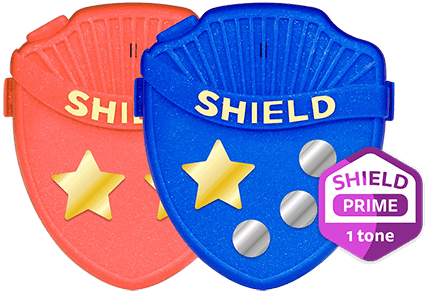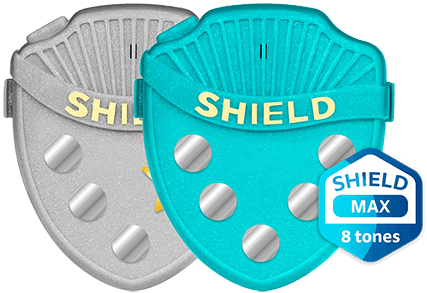Stop Bed Wetting
Bed wetting or nocturnal enuresis is the unintentional, passage of urine during sleep at night after the age when a child should have the ability to control his/her bladder when it is full. Experts think that five to seven million children in this country wet the bed occasionally and are actively looking for ways to stop bed wetting. The older children get, the less likely they are to wet the bed, as children outgrow the problem at a rate of roughly 15% per year. However, this means that 1% of older teenagers, and 20% of children between the ages of six and five will still wet their bed regularly and need help to stop bed wetting.
Types of Bed wetting
There are two types of Bed wetting; Primary and secondary.
Primary Bed wetting is the type that is going on with the child since early childhood without a break, where the child has never been able to stop bed wetting and be dry at night for any significant period of time. Most of the children are having primary bed wetting.
Secondary Bed wetting is when the child has had a period of being dry during sleep (most often 6 to 12 months). Up to 25% of all bed wetter’s have secondary enuresis. While some cases of secondary enuresis can be linked to recent stress, the testing, care and results are often the same as for primary enuresis..
Primary Bed wetting?
Primary bed wetting is viewed as a delay in maturation of the nervous system when children can not stop bed wetting. The inability to recognize messages of the nervous system sent by the full bladder to the sleep arousal centers of the brain while asleep.
Studies show that as many as 5-7 million children in the U.S suffer from bed wetting. The cause is likely due to one or combinations of any of the factors listed below.
- When child is unable to stop bed wetting with no control on his full bladder and can’t hold urine for the entire night.
- When the child is a deep sleeper and does not get up even when his/her bladder is full.
- When the child produces a very large amount of urine during the night when asleep.
- The child has poor daytime toilet habit. Many children who have primary bed wetting ignore the urge to urinate even at morning hours and put avoid urinating for a very long time.
- Children with “sleep disordered breathing” (ranging from snoring to sleep apnea) are at an increased risk for developing primary bedwetting.
Secondary Bed wetting?
A child with secondary bedwetting is much more likely to have other symptoms like daytime bedwetting. Some causes for secondary bed wetting are as follows.
- Urinary tract infection. Check if the child has urinary tract infection.
- The waking-up response to having a full bladder is not fully developed; your child does not have conscious control over bed wetting
- Diabetes. This can be other reason when body increase urine output as a consequences of excessive blood glucose level.
- Excessive fluid intake. Consuming large amounts of fluids especially before going to bed could result in secondary bedwetting.
- Twitchy or overactive bladder. This may cause wet pants or urgency (rushing off to the toilet) in the daytime constipation can lead to bed wetting
- Emotional problems. A stressful environment at home or school sometimes causes children to wet the bed.
- Sleep apnea. Sleep pattern like can be associated with secondary bedwetting.
- Excessive fluid intake. Consuming large amounts of fluids especially before going to bed could result in secondary bed wetting.
- Hereditary. Bedwetting tends to runs in families, chances your child would be a bedwetter if either of the parent is wetting the bed.
Impact of Bed wetting on Children
Bed wetting can have short or long term impacts. When children can’t stop bed wetting, it is extremely stressful for both children and parents. Studies shows that bed wetting children can develop lower confidence and self esteem and live in fear of being discovered by their peers and feel of getting bullied and teased at home and school. Overall their social environment and school performance becomes weak. The impact of bed wetting can increase if they don’t get parental support that leads them to refuse to interact and be social in most situations so be patient and understanding – reassure your child, especially if they are upset
Parental support is very essential; parents must make children feel that they are not alone. Sharing bedwetting stories can make them feel better. The child might feel that something is wrong with them but to see positive results educate yourself and your child about bedwetting and help them to stop bed wetting and overcome bed wetting sooner.
Tips on How to Stop Bed Wetting
Children often worry about wetting the bed at when they go for school camps or at sleepovers your child should be encouraged not to miss out on these fun times. Many children who wet the bed are very deep sleepers and it is usually harder to wake them up. Reassurance and encouragement often will work in time, but for some children, there are steps that can be taken to address the issues. some common recommended management and treatment options include the following:
- Encourage voiding prior to bedtime
- Restrict fluid intake before bed.
- Use bedwetting alarm. They help children wake up when the device senses urine so they can use the toilet
- Bladder-stretching exercises can increase the bladder volume and increasing the periods between daytime urinations.
- Cover the mattress with plastic that helps to protect your bed from any urine leakage.
- Educate your bedwetting child and tell him that he is not alone
- Avoid constipation by increasing the intake of fiber and fluid.
- Share bedwetting stories with them and tell them if it runs in the family.
- Award them for being dry at night.
- Motivate them and track your child’s progress.
- Talk to your child’s pediatrician to evaluate the cause.
A bedwetting alarm is a highly effective way to stop bed wetting

SHIELD PRIME BEDWETTING ALARM
Shield Prime bedwetting alarm is a compact and discreet alarm with powerful built in technology. The single tone alarm comes in two metallic colors – Royal Blue and Red. Each is engineered to stop bed wetting in children ages 5 and up and teenagers who wet the bed at night.

SHIELD MAX BEDWETTING ALARM
Shield Max bedwetting alarm is a highly recommended bedwetting solution. It comes in two metallic colors – Teal and Silver and is powered by 8 loud alert tones, a bright light and strong vibrations. Shield alarms offer ideal treatment to stop bed wetting children ages 5 plus and teens.
